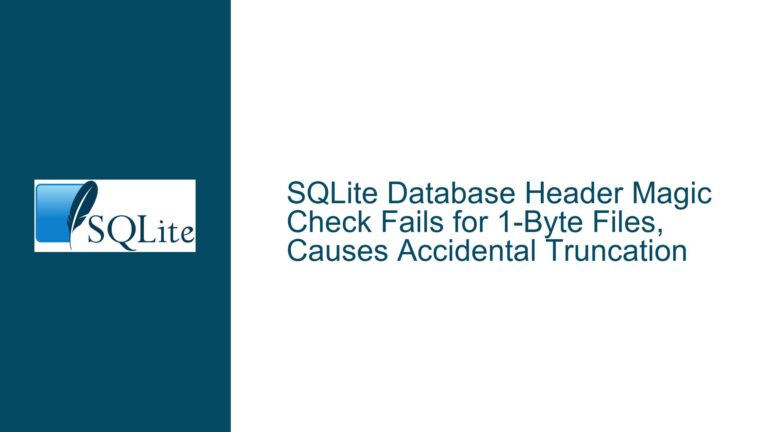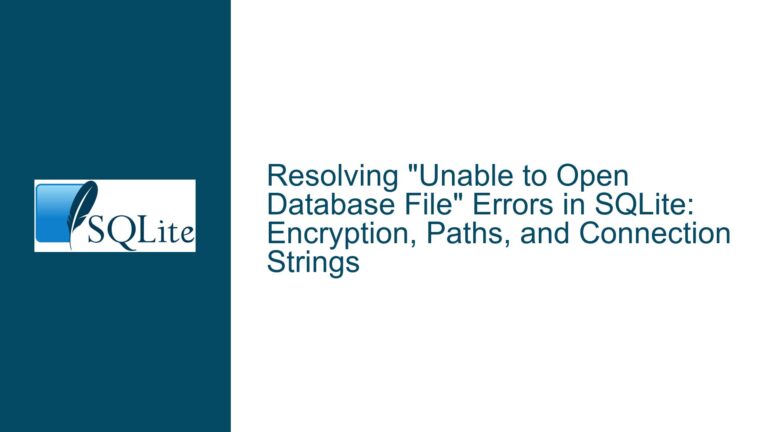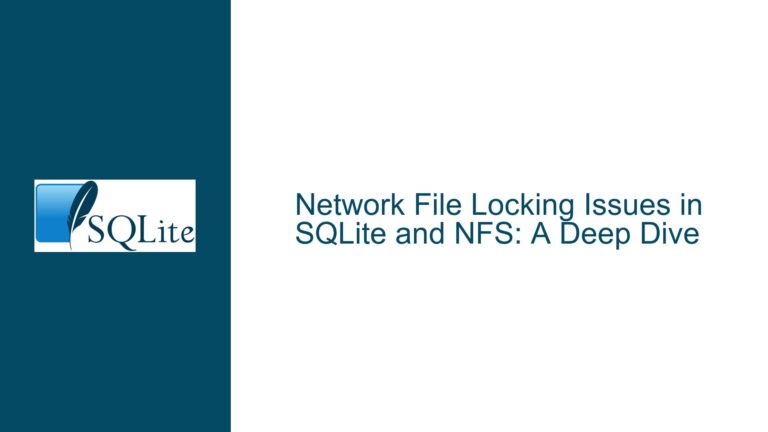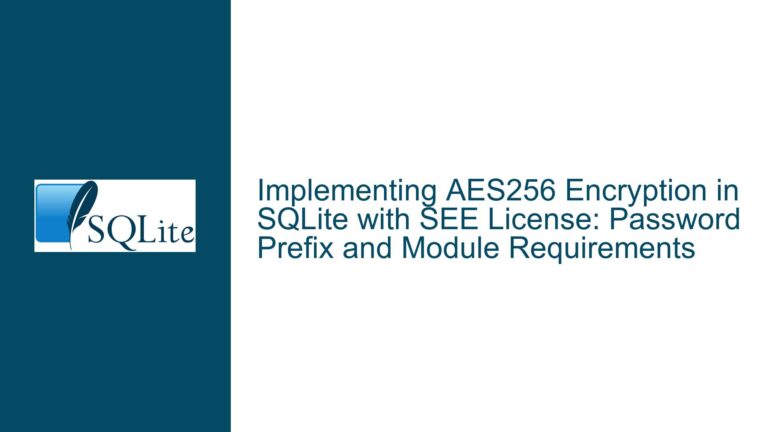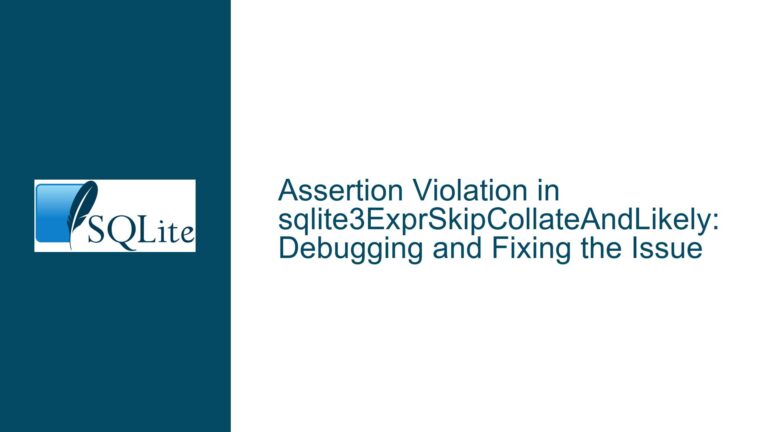SQLite Database Header Magic Check Fails for 1-Byte Files, Causes Accidental Truncation
Database Header Validation Logic and Accidental File Truncation Behavior The core issue revolves around SQLite’s handling of files that are exactly 1 byte in size. When a user attempts to open such a file with the SQLite command-line interface (CLI) or programmatically via the SQLite API, the database engine skips its standard header validation checks….
